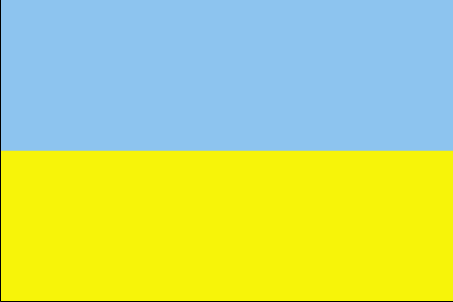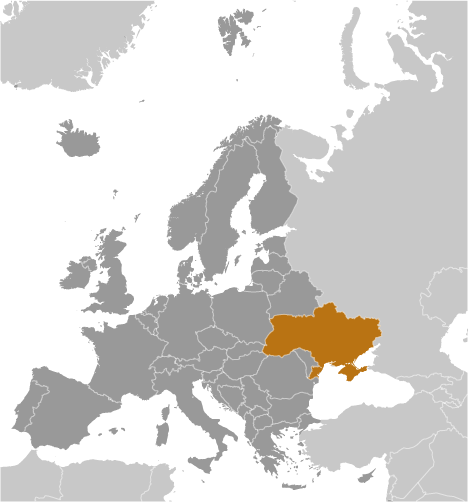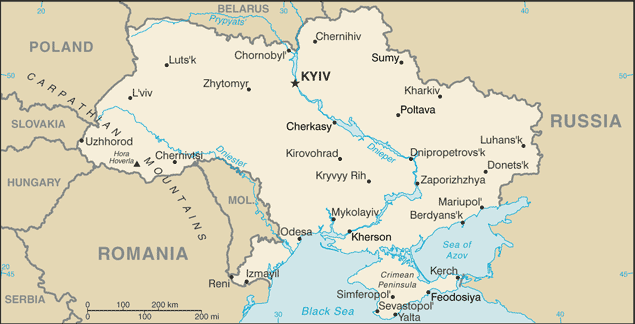Ukraine was the center of the first eastern Slavic state, Kyivan Rus, which during the 10th and 11th centuries was the largest and most powerful state in Europe. Weakened by internecine quarrels and Mongol invasions, Kyivan Rus was incorporated into the Grand Duchy of Lithuania and eventually into the Polish-Lithuanian Commonwealth. The cultural and religious legacy of Kyivan Rus laid the foundation for Ukrainian nationalism through subsequent centuries. A new Ukrainian state, the Cossack Hetmanate, was established during the mid-17th century after an uprising against the Poles. Despite continuous Muscovite pressure, the Hetmanate managed to remain autonomous for well over 100 years. During the latter part of the 18th century, most Ukrainian ethnographic territory was absorbed by the Russian Empire. Following the collapse of czarist Russia in 1917, Ukraine was able to achieve a short-lived period of independence (1917-20), but was reconquered and forced to endure a brutal Soviet rule that engineered two forced famines (1921-22 and 1932-33) in which over 8 million died. In World War II, German and Soviet armies were responsible for some 7 to 8 million more deaths. Although final independence for Ukraine was achieved in 1991 with the dissolution of the USSR, democracy and prosperity remained elusive as the legacy of state control and endemic corruption stalled efforts at economic reform, privatization, and civil liberties. A peaceful mass protest "Orange Revolution" in the closing months of 2004 forced the authorities to overturn a rigged presidential election and to allow a new internationally monitored vote that swept into power a reformist slate under Viktor YUSHCHENKO. Subsequent internal squabbles in the YUSHCHENKO camp allowed his rival Viktor YANUKOVYCH to stage a comeback in parliamentary elections and become prime minister in August of 2006. An early legislative election, brought on by a political crisis in the spring of 2007, saw Yuliya TYMOSHENKO, as head of an "Orange" coalition, installed as a new prime minister in December 2007. Viktor YANUKOVUYCH was elected president in a February 2010 run-off election that observers assessed as meeting most international standards. The following month, the Rada approved a vote of no-confidence prompting Yuliya TYMOSHENKO to resign from her post as prime minister.
Population
45,415,596 (July 2010 est.)
Country comparison to the world:27
Nationality
Noun:Ukrainian(s)
Adjective:Ukrainian
Ethnic groups
Ukrainian 77.8%, Russian 17.3%, Belarusian 0.6%, Moldovan 0.5%, Crimean Tatar 0.5%, Bulgarian 0.4%, Hungarian 0.3%, Romanian 0.3%, Polish 0.3%, Jewish 0.2%, other 1.8% (2001 census)
Religions
Ukrainian Orthodox - Kyiv Patriarchate 50.4%, Ukrainian Orthodox - Moscow Patriarchate 26.1%, Ukrainian Greek Catholic 8%, Ukrainian Autocephalous Orthodox 7.2%, Roman Catholic 2.2%, Protestant 2.2%, Jewish 0.6%, other 3.2% (2006 est.)
Languages
Ukrainian (official) 67%, Russian 24%, other 9% (includes small Romanian-, Polish-, and Hungarian-speaking minorities)
Country Name
Conventional long form:none
Conventional short form: Ukraine
Local long form:none
Local short form: Ukraine
Former:Ukrainian National Republic, Ukrainian State, Ukrainian Soviet Socialist Republic
Government Type
republic
Capital
Name:Kyiv (Kiev)
note: pronounced KAY-yiv
Geographic coordinates:50 26 N, 30 31 E
Time difference:UTC+2 (7 hours ahead of Washington, DC during Standard Time)
daylight saving time: +1hr, begins last Sunday in March; ends last Sunday in October
Administrative divisions
24 provinces (oblasti, singular - oblast'), 1 autonomous republic* (avtonomna respublika), and 2 municipalities (mista, singular - misto) with oblast status**; Cherkasy, Chernihiv, Chernivtsi, Crimea or Avtonomna Respublika Krym* (Simferopol'), Dnipropetrovs'k, Donets'k, Ivano-Frankivs'k, Kharkiv, Kherson, Khmel'nyts'kyy, Kirovohrad, Kyiv**, Kyiv, Luhans'k, L'viv, Mykolayiv, Odesa, Poltava, Rivne, Sevastopol'**, Sumy, Ternopil', Vinnytsya, Volyn' (Luts'k), Zakarpattya (Uzhhorod), Zaporizhzhya, Zhytomyr
note: administrative divisions have the same names as their administrative centers (exceptions have the administrative center name following in parentheses)
Independence
24 August 1991 (from the Soviet Union)
National Holiday
Independence Day, 24 August (1991); note - 22 January 1918, the day Ukraine first declared its independence (from Soviet Russia) and the day the short-lived Western and Greater (Eastern) Ukrainian republics united (1919), is now celebrated as Unity Day
Constitution
adopted 28 June 1996
Legal system
based on civil law system; judicial review of legislative acts; has not accepted compulsory ICJ jurisdiction
Suffrage
18 years of age; universal
Executive branch
Chief of state:President Viktor YANUKOVYCH (since 25 February 2010)
Head of government:Prime Minister Mykola AZAROV (since 11 March 2010); First Deputy Prime Minister Andriy KLYUYEV (since 11 March 2010); Deputy Prime Ministers Borys KOLESNIKOV, Volodymyr SEMYNOZHENKO, Volodymyr SIVKOVYCH, Viktor SLAUTA, Serhiy TIHIPKO, Viktor TYKHONOV (all since 11 March 2010)
Cabinet:Cabinet of Ministers selected by the prime minister; the only exceptions are the foreign and defense ministers, who are chosen by the president
(For more information visit the World Leaders website)
note: there is also a National Security and Defense Council or NSDC originally created in 1992 as the National Security Council; the NSDC staff is tasked with developing national security policy on domestic and international matters and advising the president; a Presidential Administration helps draft presidential edicts and provides policy support to the president
Elections:president elected by popular vote for a five-year term (eligible for a second term); election last held on 17 January 2010 with runoff on 7 February 2010 (next to be held in 2015); under constitutional reforms that went into effect 1 January 2006, the majority in parliament takes the lead in naming the prime minister
Election results: Viktor YANUKOVYCH elected president; percent of vote - Viktor YANUKOVYCH 48.95%, Yuliya TYMOSHENKO 45.5%
Legislative branch
unicameral Supreme Council or Verkhovna Rada (450 seats; members allocated on a proportional basis to those parties that gain 3% or more of the national electoral vote; members to serve five-year terms)
Elections: last held on 30 September 2007 (next must be held in 2012 or sooner if a ruling coalition cannot be formed in the Rada)
Election results:percent of vote by party/bloc - Party of Regions 34.4%, Yuliya Tymoshenko Bloc 30.7%, Our Ukraine-People's Self Defense 14.2%, CPU 5.4%, Lytvyn bloc 4%, other parties 11.3%; seats by party/bloc - Party of Regions 175, Yuliya Tymoshenko Bloc 156, Our Ukraine-People's Self Defense 72, CPU 27, Lytvyn bloc 20
Judicial branch
Supreme Court; Constitutional Court
Political Parties and Leaders
Christian Democratic Union [Volodymyr STRETOVYCH]; Communist Party of Ukraine or CPU [Petro SYMONENKO]; European Party of Ukraine [Mykola KATERYNCHUK]; Fatherland Party (Batkivshchyna) [Yuliya TYMOSHENKO]; Forward Ukraine! [Viktor MUSIYAKA]; Front of Change [Arseniy YATSENYUK]; Labor Party of Ukraine [Mykola SYROTA]; Our Ukraine [Viktor YUSHCHENKO]; Party of Industrialists and Entrepreneurs [Anatoliy KINAKH]; Party of the Defenders of the Fatherland [Yuriy Karmazin]; People's Movement of Ukraine (Rukh) [Borys TARASYUK]; People's Party [Volodymyr LYTVYN]; Peoples' Self-Defense [Yuriy LUTSENKO]; PORA! (It's Time!) party [Vladyslav KASKIV]; Progressive Socialist Party [Natalya VITRENKO]; Reforms and Order Party [Viktor PYNZENYK]; Party of Regions [Viktor YANUKOVYCH]; Sobor [Anatoliy MATVIYENKO]; Social Democratic Party [Yevhen KORNICHUK]; Social Democratic Party (United) or SDPU(o) [Yuriy ZAHORODNIY]; Socialist Party of Ukraine or SPU [Oleksandr MOROZ]; Ukrainian People's Party [Yuriy KOSTENKO]; United Center [Ihor KRILL]; Viche [Inna BOHOSLOVSKA]
Political pressure groups and leaders
Committee of Voters of Ukraine [Aleksandr CHERNENKO]
International organization participation
Australia Group, BSEC, CBSS (observer), CE, CEI, CICA (observer), CIS; has not signed the 1993 CIS charter although it participates in the meetings, EAEC (observer), EAPC, EBRD, FAO, GCTU, GUAM, IAEA, IBRD, ICAO, ICC, ICCt (signatory), ICRM, IDA, IFC, IFRCS, IHO, ILO, IMF, IMO, IMSO, Interpol, IOC, IOM, IPU, ISO, ITU, ITUC, LAIA (observer), MIGA, MONUC, NAM (observer), NSG, OAS (observer), OIF (observer), OPCW, OSCE, PCA, PFP, SECI (observer), UN, UNCTAD, UNESCO, UNIDO, UNMIL, UNMIS, UNWTO, UPU, WCO, WFTU, WHO, WIPO, WMO, WTO, ZC
Diplomatic representation in the US
Chief of mission:Ambassador Oleh V. SHAMSHUR
Chancery:3350 M Street NW, Washington, DC 20007
Telephone:[1] (202) 333-0606
FAX:[1] (202) 333-0817
Consulate(s) general:Chicago, New York, San Francisco
Diplomatic representation from the US
Chief of mission:Ambassador John F. TEFFT
Embassy:10 Yurii Kotsiubynsky Street, 01901 Kyiv
Mailing address:5850 Kyiv Place, Washington, DC 20521-5850
Telephone:[380] (44) 490-4000
FAX:[380] (44) 490-4085
Flag description
two equal horizontal bands of azure (top) and golden yellow represent grain fields under a blue sky










